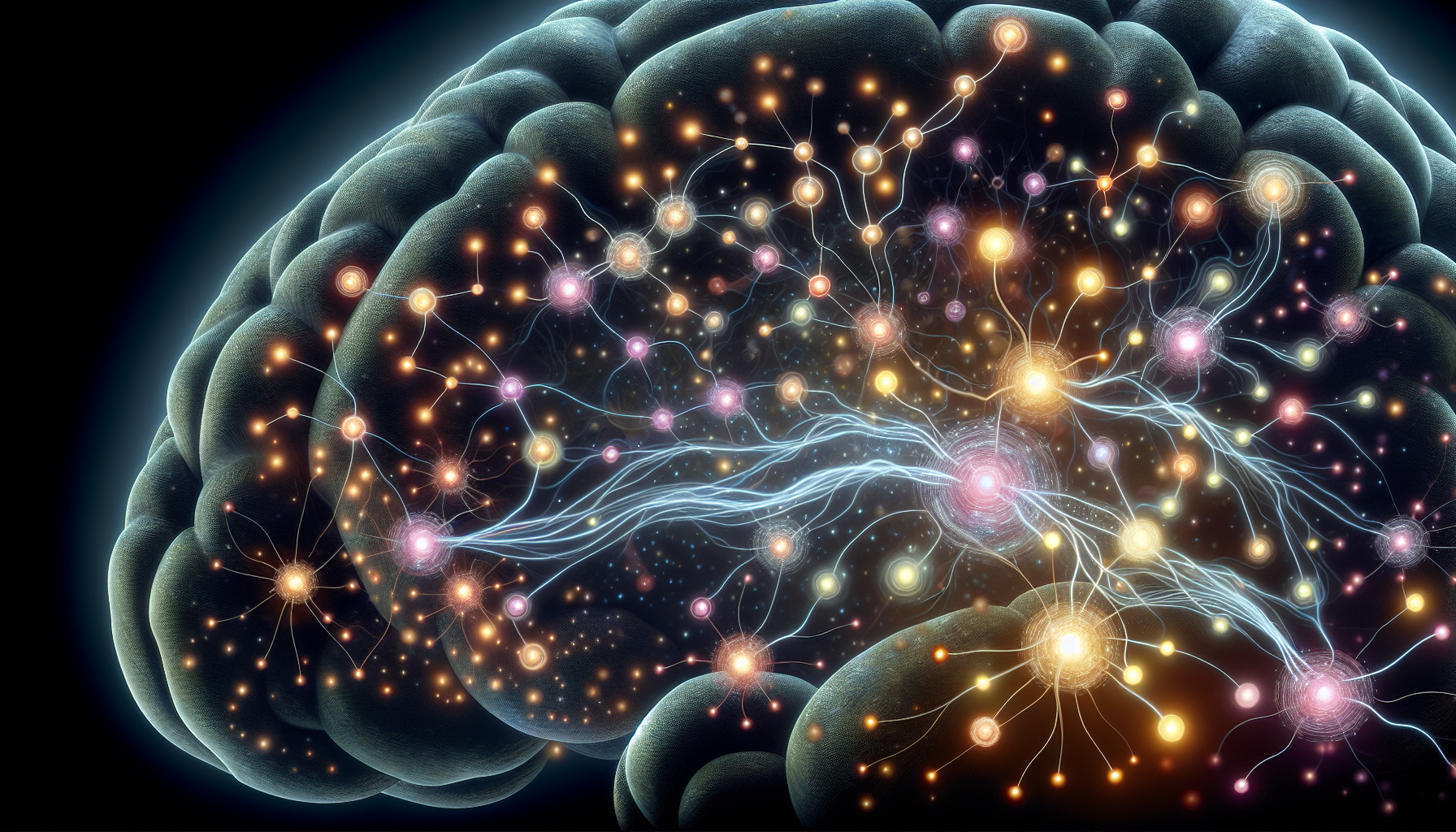Can Magnesium Help Panic Attacks? Exploring the Calming Effects
Facing the unpredictability of panic attacks prompts many to seek out remedies. One question often arises: can magnesium help panic attacks?
In this article, we examine the link between magnesium, a mineral vital for nerve health, and its potential effects on panic attack symptoms.
By focusing on what scientific studies have to say, we aim to provide clear insights into whether increasing your magnesium intake could make a difference.
Key Takeaways
- Magnesium plays a crucial role in the nervous system, potentially easing anxiety and panic attack symptoms by regulating neurotransmitters and stress hormones.
- Ensuring optimal magnesium intake within recommended dietary allowances can contribute to preventing magnesium deficiency, which can worsen anxiety and increase the frequency of panic attacks.
- While magnesium has the potential to alleviate anxiety and panic disorders, it is not a cure-all and should be part of a comprehensive care plan that may include diet, psychotherapy, and other treatments.
Understanding Panic Attacks and the Role of Magnesium

Imagine you’re perched on the edge of a very steep cliff, your heart racing and your hands slick with sweat—except there’s no such cliff.
This is a daunting experience for individuals who suffer from panic attacks, which ambush them unexpectedly with a wave of dread accompanied by physical manifestations including:
- palpitations,
- breathlessness,
- lightheadedness,
- chest discomfort,
- muscle tremors,
- perspiration,
- and stomach aches.
These episodes are not mere instances of heightened worry.
They represent intense bodily reactions that can seem like an unwelcome takeover of one’s physiology, rendering a person feeling helpless and terrified, commonly linked to generalized anxiety disorder.
Imagine if we possessed something akin to a secret weapon to mitigate this inner chaos—a particular nutrient capable of pacifying the tempest within?
Enter magnesium. This mineral might be unassuming, yet plays a pivotal role in our nervous system’s complex symphony.
It functions similarly to how a maestro ensures coherence among orchestra members—in this case, neurotransmitters—the crucial chemical messengers managing our emotional state and stress responses.
A magnesium deficit is comparable to removing the maestro from their stand: without it, harmony falters leading us towards increased anxiety levels and vulnerability toward panic.
The significance of magnesium in maintaining mental health may just be emerging into prominence, but it stands as potentially transformative information for those aspiring for tranquility amidst life’s unrest.
Defining Panic Attacks
Panic attacks can be likened to a malfunctioning alarm system in the body, mistakenly signaling imminent danger and unleashing an array of anxiety symptoms.
These intense bursts are characterized by extreme fear along with physiological responses such as difficulty breathing, feeling dizzy, and tensing muscles.
It’s akin to someone setting off the body’s crisis siren, putting every bodily function into high alert.
Individuals grappling with panic disorder often endure this terror repeatedly.
Apprehension over when the next onslaught will occur only serves to amplify their distress.
This perpetuating loop can incapacitate one’s daily life, but recognizing what is happening is critical in taking steps toward recovery.
The Connection Between Magnesium and the Nervous System
Magnesium plays an often overlooked but crucial role within the central nervous system, acting as a calming influence on our brain’s reaction to stress.
This mineral serves as an inherent tranquilizer by:
- Reducing cortisol secretion, which is pivotal in activating our body’s fight-or-flight mechanism,
- Promoting tranquility,
- Managing the activity of neurotransmitters including GABAand glutamate,
- Keeping brain chemistry even to avoid excessive stimulation that may result in anxiety.
Through its regulation of vital chemical messengers, magnesium acts as a safeguard against neurological disturbances that can culminate in panic attacks.
Within the complex network of the central nervous system, it emerges as a significant factor for maintaining mental serenity.
The Potential of Magnesium to Alleviate Panic Attack Symptoms

It may seem far-fetched to consider that a mineral could affect our psychological state akin to an alchemical process, yet there is increasing support for the idea that magnesium can alleviate anxiety.
This capability goes beyond just making up for a shortage.
It involves leveraging magnesium’s power over essential neurotransmitters responsible for controlling our emotions.
Imagine fine-tuning an elaborate musical instrument, so each emotional note vibrates with harmony rather than discordance.
Magnesium appears multi-dimensional in its approach toward anxiety reduction: from calming nervous systems and boosting moods to fostering serenity — this mineral shows promise in mitigating brain hyperactivity which can be crucial during intense panic episodes.
Although magnesium isn’t a cure-all solution, its impact on neurological pathways stands out as particularly significant concerning symptoms related to fearfulness and phobias.
Research indicates even moderate quantities of magnesium might help stave off anxious feelings, offering solace to those besieged by overwhelming sensations within their own physiology.
Caution should be exercised when considering these findings since ongoing studies reveal varied results – some point out flaws like limited participant numbers or less effective forms of magnesium used in experiments.
Despite such caveats though, many are hopeful about finding comfort through something as unassuming as the mineral magnesium.
Impact on GABA Receptors
Magnesium plays a crucial role as it functions like a key to open the GABA receptors, which are critical for maintaining tranquility in our brains.
This mineral facilitates GABA activity, leading to increased relaxation and diminished anxiety levels. Its function is akin to that of a natural tranquilizer but without inducing lethargy.
In its glycinate form, magnesium becomes even more powerful. This is because the amino acid glycine acts as another calming neurotransmitter that boosts the effect of magnesium on GABA receptors.
When magnesium comes in taurate form—incorporating the amino acid taurine—it not only promotes calmness by supporting GABA production, but also may provide an enhanced level of peace for individuals dealing with heightened stress and tension.
Regulation of Stress Hormones

Magnesium doesn’t just calm neurotransmitters.
It also controls our stress hormones, curbing the series of responses that might culminate in an intense panic episode.
It achieves this by reducing the secretion of catecholamines, such as epinephrine and nor-epinephrine, preventing our internal stress levels from soaring to extreme heights.
The balance of these hormones is vital—it influences both our immediate response to stressful situations and our enduring capacity to cope with pressure.
Essentially, magnesium acts like a natural buffer against stress, preserving our calm even amidst life’s unexpected challenges.
Optimal Magnesium Intake for Panic Attack Prevention
Ensuring adequate magnesium intake is akin to fine tuning an instrument—it’s vital for maintaining the mind’s serene symphony.
Adults should aim for a daily dosage of 310 mg to 420 mg of magnesium, though individual needs may vary depending on factors such as age and gender.
While there isn’t a universally prescribed amount of magnesium specifically for easing anxiety, meeting or exceeding the recommended dietary allowance plays a significant role in its prevention.
Achieving this balance is key. We must obtain enough magnesium to fulfill our physiological requirements while avoiding falling into a deficiency which could intensify feelings of anxiety.
But determining whether our bodies are absorbing sufficient amounts can be tricky—the cues pointing toward deficiency might whisper faintly yet hold profound significance for overall health.
Manifestations like disturbed sleep patterns, increased irritability, and muscle twitching may be subtle indicators that signal our body’s plea for more magnesium.
In failing to respond adequately to these signals, one risks aggravating symptoms related to anxiety and potentially increasing panic attack episodes.
Considering nearly 70% of Americans are reported as being deficient in this crucial mineral suggests that many individuals aren’t ingesting what’s necessary to preserve mental tranquility.
Recommended Dietary Allowance for Magnesium
Regarding the recommended daily magnesium intake, there’s no one-size-fits-all tune.
In young adulthood, men may need up to 400 mg from ages 19-30 to stay in harmony, while women of the same age group could maintain their melody with a slightly lesser amount of around 310 mg.
As individuals mature beyond the age of thirty, the required rhythm shifts — men then require about 420 mg and women need approximately 320 mg for optimal health performance.
It should be noted that specific demographics like men over seventy and teenagers are more likely to skip a beat regarding their magnesium consumption, potentially leading them into disharmony health-wise.
It’s imperative not to exceed a crescendo by going above the maximum safe limit for daily magnesium supplements, which is placed at 350 mg.
Rather orchestrate your wellbeing carefully so every nutrient hits its note perfectly without drowning out the collective symphony.
Signs of Magnesium Deficiency

The subtle signs of magnesium deficiency can easily be overlooked until they escalate into more pronounced issues.
The body emits warning signs, ranging from disturbances caused by sleep disorders to the discomfort of muscle spasms, alerting us to take action before anxiety intensifies.
Symptoms such as low blood pressure, chronic fatigue, and irritability serve as jarring notes that break our physiological balance – these are indicators that suggest an increase in magnesium intake might be necessary.
Given that our contemporary diets often fall short on vital nutrients due to factors like depleted soils and food processing practices, it’s hardly surprising many individuals have a muted presence of magnesium in their system.
Choosing the Right Magnesium Supplement for Anxiety Disorders

If our mental health status indicates the need for a magnesium supplement, making an informed choice is as important as picking out the perfect instrument for a musical masterpiece.
Different forms of magnesium are not equally effective, and certain varieties may be more adept at alleviating anxiety disorders.
Magnesium oxide and sulfate might fall short in this regard.
Others like magnesium lactate, citrate, chloride, and aspartate have better absorption rates and could be more effective in soothing symptoms related to anxiety.
With options ranging from powders to tablets available on the market, finding one that resonates with individual preferences should be possible.
There are also full-spectrum magnesium supplements that include all of the most beneficial types of magnesium, especially for both physical and mental health.
The specific type of magnesium used can greatly influence outcomes since some, such as glycinate and taurate stand out for their efficacy against anxiety.
Magnesium glycinate is particularly noted for its high absorbability rate coupled with gentle effects on digestion—providing relief especially suited for those with delicate constitutions—and might act like a lullaby easing anxious minds.
On another note, magnesium taurate distinguishes itself by specifically benefiting brain function, which can help dampen both feelings of apprehension as well as panic episodes through tranquility-promoting attributes.
Choosing your supplemental form goes beyond generic recommendations—it’s about discovering which key fits your personal mental rhythm best.
Magnesium Glycinate and Its Calming Properties
Magnesium glycinate acts as a soothing melody that calms the restless mind by merging with glycine, a gentle amino acid known for its superior absorption and digestive system benefits.
Renowned for its role in improving sleep quality—a fundamental aspect of managing stress—this form of magnesium is your silent protector throughout the night.
Meanwhile, other forms such as magnesium citrate and magnesium malate have distinct functions.
Considering how closely intertwined sleep is with emotional stability, this particular type of magnesium may be pivotal in achieving a more peaceful and balanced state of being.
It operates behind the scenes to raise magnesium levels within brain tissue, which could help even out the highs and lows associated with anxiety.
Magnesium Taurate and Brain Function
Magnesium taurate stands as the conductor of magnesium supplements with respect to brain function.
It orchestrates neuroprotection and inflammation reduction, potentially alleviating the cacophony caused by anxiety, much like a harmonious musical performance for one’s perception.
This compound enhances magnesium’s entry into the brain, promoting cognitive and neurological health so that every neuron can resonate in concert.
Associated with reduced signs of anxiety, magnesium taurate may represent the long-awaited second act for individuals experiencing panic attacks—a supplement that offers mental tranquility while simultaneously safeguarding cerebral functions.
Recognizing the Limits: When Magnesium Isn’t Enough
Just as even the most enchanting music can’t soothe every soul, magnesium, too, has its limits in the symphony of anxiety management.
It’s a vital mineral, sure, but one that should play alongside other instruments like a balanced diet and stress-reducing techniques.
There are cases where the panic persists despite the calm presence of magnesium, indicating that other forms of intervention might be needed to fully alleviate symptoms.
It’s important to recognize that while magnesium can be a beneficial supplement, it’s not a cure-all and should not replace professional medical care, especially in the intricate dance of managing anxiety disorders.
The composition of a comprehensive care regimen includes:
- Supplements,
- Proper diet,
- Psychotherapy,
- Possibly other medical treatments.
One clinical trial even showed that participants with mild-to-moderate depression symptoms found an improvement in their mood when incorporating magnesium into their plan, illustrating the mineral’s potential as part of a broader strategy.
At its core, the primary treatments for anxiety involve addressing both the psychological and physiological aspects to create a melody of mental wellness that resonates with each individual’s needs.
The Importance of Comprehensive Care
Enhancing magnesium consumption can serve as a calming element in the grand symphony of anxiety management strategies.
It is crucial to bear in mind that this nutrient plays just one part in an extensive melody.
An all-encompassing strategy for mental well-being should incorporate nutritious eating habits, methods for managing stress, and appropriate medical interventions—a chorus where each contributes to the harmony of thorough care provision.
In this context, magnesium’s contribution is supportive. It complements other elements rather than acting as an exclusive solution.
Attaining mental health resembles an intricate ballet, with various maneuvers contributing to its gracefulness.
Magnesium might sometimes take the lead role in this performance, but achieving equilibrium and recovery hinges on the collaborative rhythm made up of a sequence of carefully choreographed moves.
Knowing When to Seek Professional Help
Should a moment arise where tranquility wanes and anxiety remains tenaciously in focus, it could indicate that the relief sought through a month of magnesium supplementation hasn’t been achieved.
This lack of improvement is an indication to collaborate with a healthcare professional to explore treatment possibilities.
The spectrum of therapeutic interventions ranges from talk therapy to pharmacological approaches and may also include innovative methods such as mobile-assisted case management, which aids in following treatment plans and managing symptoms effectively.
It’s crucial not to confront these discordant emotions by oneself. Seeking assistance can often lead to the most symphonic path back to well-being.
Managing Overconsumption: The Risks of Too Much Magnesium
Maintaining a balanced magnesium intake is crucial as both insufficient and excessive amounts can create problems.
An abundance of magnesium, particularly from supplements, may cause gastrointestinal disturbances including diarrhea, nausea, and abdominal cramps that disturb the body’s harmony.
Normally, our kidneys are adept at eliminating extra dietary magnesium to prevent toxicity.
It’s wise to be cautious with supplement use to avoid the more serious consequences of too much magnesium in the system.
Achieving equilibrium requires being vigilant about our body’s signals and consciously regulating our intake.
Diarrhea or loose stools frequently signal an overabundance of this mineral—a bothersome yet typically non-threatening reaction.
On rarer occasions, significant health issues such as lowered blood pressure or cardiac complications could ensue should blood levels of magnesium rise excessively.
This serves as a cautionary note that even minerals vital for well-being must be kept within appropriate limits lest they become overpowering when indulged in excess.
Identifying Symptoms of Excess Magnesium
When the body has an excess of magnesium, it sends out signals reminiscent of an overly dominant string section in an orchestra.
Diarrhea and nausea usually serve as early warning melodies, indicating that there might be too much magnesium present.
Should this surplus persist, a rise to more severe health issues could occur.
Paying attention to these physiological symphonies and disharmonies is crucial for sustaining the optimal amount of magnesium within our systems—a delicate balance where we achieve calmness without inundating our bodily functions with too much of this mineral.
Safe Supplementation Practices
Research in biological trace elements has underlined the significance of maintaining appropriate levels of magnesium, an essential nutrient that supports physical activity and overall health.
This is akin to a symphony where green leafy vegetables play a key role as sources rich in this mineral.
The Tolerable Upper Intake Levels (ULs) for magnesium act like musical tempo markings.
They guide us on how quickly we can safely proceed with supplementation, promoting balance without overindulgence.
Adhering to these ULs while enjoying foods abundant in magnesium allows us to maintain perfect harmony within our body’s composition.
Summary
In the complex symphony of our mental health, magnesium emerges as a potential virtuoso in the fight against anxiety and panic attacks.
From fine tuning neurotransmitters to conducting stress hormones, this elemental maestro offers a natural remedy for those seeking reprieve from the cacophony of anxiety.
Yet, as we’ve seen, it’s not a solo act; magnesium’s role is best played within an ensemble of comprehensive care.
Whether you’re looking to reduce anxiety, manage panic attacks, or simply enhance your overall well-being, consider magnesium as part of your wellness routine—but always in concert with the advice of healthcare professionals and mindful of the balance required to avoid disharmony.
Learn more about magnesium nutrition here!
Frequently Asked Questions
Does magnesium calm the nervous system?
Indeed, magnesium plays a role in regulating brain chemical messengers, which can lead to a soothing impact on the body.
Research has shown that this mineral might alleviate specific stress and anxiety symptoms through its calming effect.
Which magnesium is best for panic attacks?
Present studies suggest that among various magnesium compounds, magnesium taurate and glycinate hold the most substantial support for mitigating symptoms of anxiety and panic attacks.
There’s emerging therapeutic promise in using magnesium malate and threonine for the treatment of mental health conditions.
You can also opt for a full-spectrum magnesium supplement to ensure that you get all the benefits from several forms of magnesium daily.
Can magnesium supplements cure panic attacks?
No, while magnesium supplements are not a cure for panic attacks, they do play a role in mitigating symptoms as they foster relaxation and help control stress hormones.
It is critical to incorporate magnesium within an all-encompassing treatment strategy that could also encompass dietary changes, therapeutic sessions, and additional medical measures.
How much magnesium should I take for anxiety?
For the management of anxiety with magnesium, it’s crucial to seek advice from a medical professional who can recommend the correct dosage, since the amount necessary can vary based on one’s age and gender.
What are the signs of magnesium deficiency?
Should you suffer from irritability, muscle spasms, sleep disorders, and low blood pressure, these symptoms might point to a deficiency in magnesium that could potentially lead to anxiety and panic attacks.




Comments